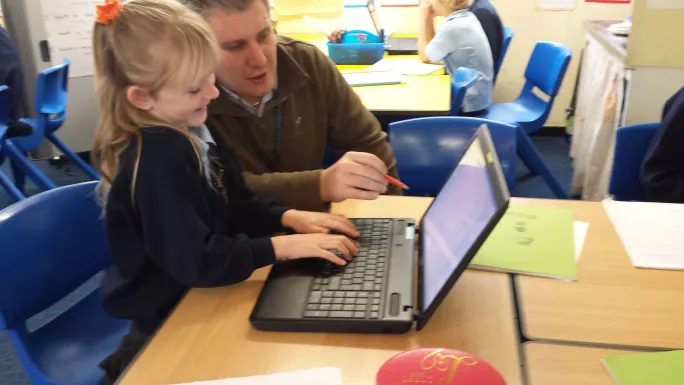How computing could be key to improving literacy
This is the third instalment of our series of blogs by James Holmes, a class teacher at Abbas and Templecombe Primary School in Somerset, who reveals the challenges he faces as he implements the new computing curriculum at his school.
I’ve spent this first term introducing my class to new uses for technology. The focus has been on writing in particular, encouraging the children - especially key stage 2 boys - to become independent in their writing and to take risks with their use of language and writing styles.
One of my main issues with inspiring writing is that the only person who gets to read a child’s work is me. Unless time has been allocated within a lesson for the students to read each other’s work, the books are written in, marked, then put back on the pile.
One way of helping pupils begin to see a purpose in their efforts is by giving them an audience for their writing and this is where technology comes in: blog writing works brilliantly.
Technology should be used to enhance children’s learning within other core subjects and not simply as a back door into computing. A blog is the perfect way to further the children’s understanding of the technology in their lives, with the learning in class being primarily focused on literacy.
I tried this during a lesson on the topic of “creation stories”. The pupils read a range of stories by the author and poet Ted Hughes. They then used their structure and content to “scaffold” their own creation stories, planning them in the normal way: talk for writing, followed by story paths, then by draft writing.
Then things diverted from the normal path. Normally, the children write a draft version in their books, which I edit ready for them to write out neatly. This time, however, they wrote their final stories directly on to our class blog and once they’d published their stories, I set about sharing their work through social and parent networking.
Within a few days the children had received comments from all kinds of people - other children as well as adults who simply wanted to give them encouragement and support. The children became hooked. Reluctant writers were now asking each morning if they’d received more comments and were responding positively to the feedback that had been left for them. The children were thrilled that their writing had been read by other people.
We now try to share as much of the class work as possible with the outside world and the children use the blog regularly to leave feedback for their friends. Every comment I have received so far has been positive and encouraging, and the children really are becoming confident and independent in their writing.
After all, every writer wants their story to be read - blogging is the ideal gateway through which to share that story.
Keep reading for just £1 per month
You've reached your limit of free articles this month. Subscribe for £1 per month for three months and get:
- Unlimited access to all Tes magazine content
- Exclusive subscriber-only stories
- Award-winning email newsletters




